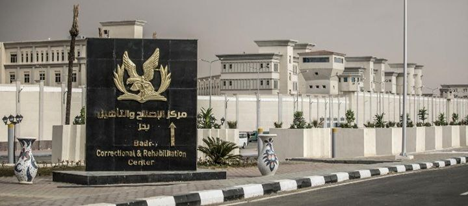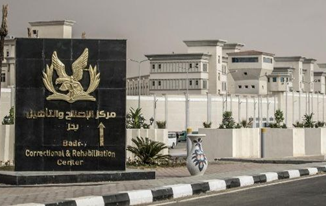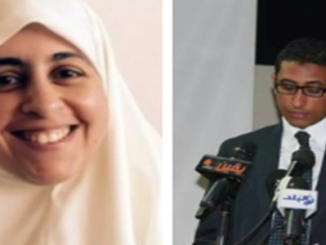
The Egyptian Initiative for Personal Rights (EIPR) said its lawyers heard for the first time Monday the testimonies and pleas of political prisoners from Badr 3 prison, after weeks of complete absence of any news from them.
A number of prisoners on Monday, 13 March, appeared on a screen from inside the prison during their electronic detention renewal hearing before the Criminal Court held in the Badr Courts Complex.
Over the past month, the prison administration has invoked technical reasons to prevent prisoners from attending their detention renewal sessions in person or via videoconference.
In light of the complete prohibition of visits to the inmates of Badr 3 prison, this led to complete isolation of the prisoners from the outside world.
This outage coincided with the leaking of a number of messages and pleas from inside the prison regarding numerous violations that prompted a number of inmates to go on hunger strike, as well as reports about a number of suicide attempts among prisoners.
In Monday’s session, which was attended by EIPR lawyers, all the detainees in Badr 3 agreed on the serious conditions inside the prison, and informed the court that they had been tortured by both the prison warden and the chief investigator, and that an assistant to the Minister of Interior was involved in these violations.
A number of defendants pending various cases stated that they were completely stripped naked and beaten inside prison cells.
A number of prisoners also spoke of dozens of suicide attempts due to the attacks and poor conditions in the new model prison, which does not allow visits or exercise, in violation of Egyptian and international laws.
The EIPR lawyers added that one of the defendants presented in yesterday’s session, lawyer Abd Rabbo Abd al-Nabi, appeared before the court on the screen while handcuffed and showing signs of intense fear; and he refrained from speaking before the court in the presence of prison officers.
Judge Muhammad Hammad, the head of the court, rejected the initiative’s lawyer’s request to prove the defendants’ statements regarding torture and suicide attempts in an independent record and to open an investigation in this regard.>
However, the EIPR lawyers documented the prisoners’ statements in the minutes of Case 238 of 2020; they also registered the physical and psychological violations that inmates were subjected to, in addition to the Badr Criminal Court’s violation of the law by renewing the detention of defendants over the past weeks, despite exceeding the maximum legal period for pretrial detention.
The Egyptian Initiative for Personal Rights held the Public Prosecution Office, whose representatives attended Monday’s session, responsible for opening an urgent investigation into these grave violations and referring perpetrators to the criminal trial.
Repression continuing
Sana Seif, sister of detained activist Alaa Abdel Fattah addressed the UN countries during a UN Human Rights Council hearing session, saying:
“Four months have passed since COP27 and nothing happened. How frustrating it was to know that governments refused to advance the demand for a UN investigation into the brutal repression in Egypt, including the imprisonment of my brother Alaa Abdel Fattah. Do the words we heard from you at Cop27 mean anything?”
“My brother Alaa Abdel-Fattah was tortured and is now about to die. I was imprisoned for 3 years; my mother and sister were assaulted. We lost our father while my brother and I were imprisoned. The real tragedy is that my family’s ordeal is not unique, but rather the suffering of 60,000 unjustly detained in Egypt,” added Sana.
On 4 November 2022, UN independent experts called on States to fully integrate human rights standards and principles, and to include human rights considerations in their nationally determined contributions and other planning processes and ensure that market-based mechanisms have effective means for protecting human rights and effective compliance and redress mechanisms, including mandatory environmental and human rights due diligence laws and policies.



